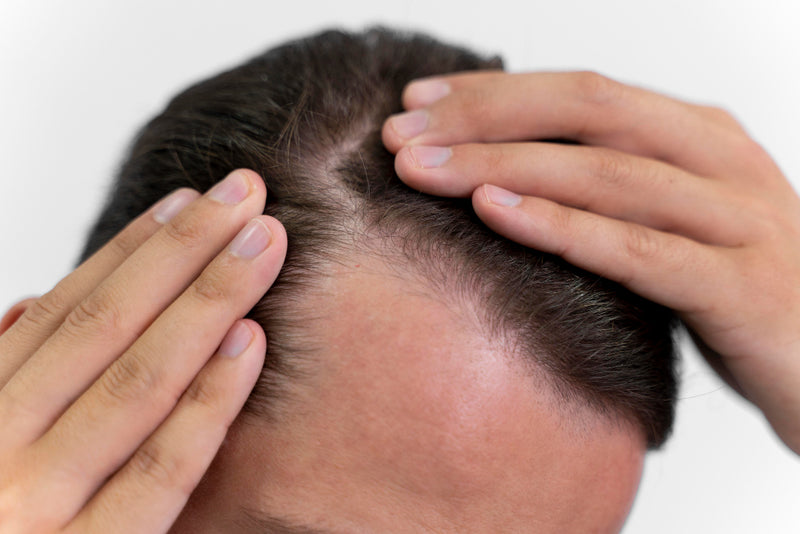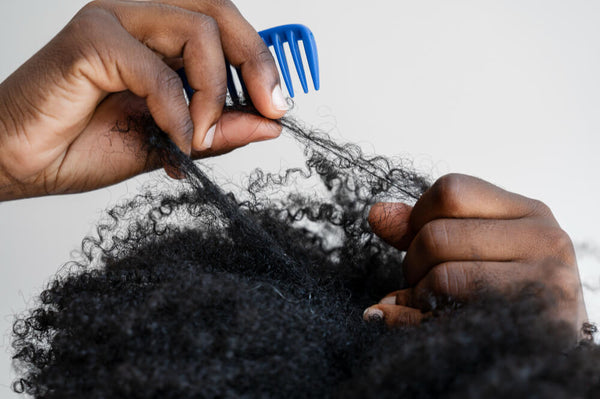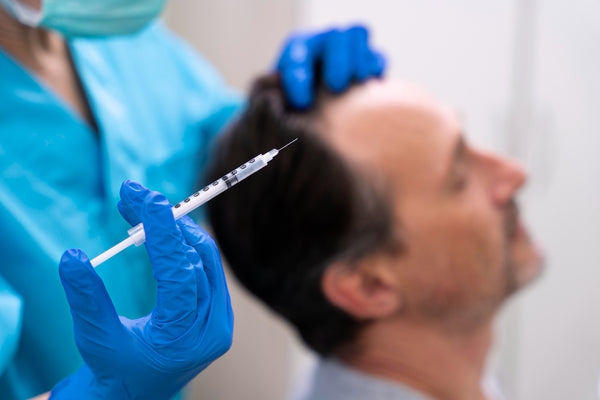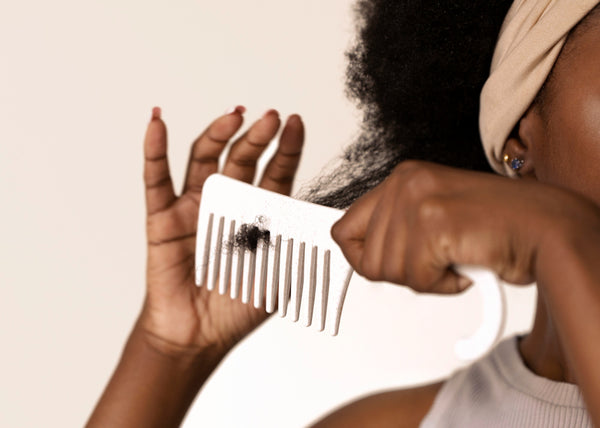Central centrifugal cicatricial alopecia (CCCA) is a type of hair loss that primarily affects women of African descent. This condition, which causes progressive scarring and hair loss in the central scalp area, can be emotionally distressing and impact self-esteem. In this article, we will unravel the causes, symptoms, and effective solutions for CCCA hair loss treatment, shedding light on how to manage and address this condition.
CCCA Causes
The exact cause of CCCA is not yet fully understood, but multiple factors contribute to its development. One primary factor is a genetic predisposition, as CCCA tends to run in families. Additionally, certain hair care practices can contribute to its onset, including tight hairstyles, chemical processing, heat styling, and traction alopecia. These practices can lead to inflammation, follicular damage, and scarring, resulting in hair loss.
Symptoms & Signs of CCCA Hair Loss
CCCA typically begins with minor symptoms that progressively worsen over time. The early stages of CCCA may involve scalp tenderness, itching, and small patches of hair loss. As the condition advances, scarring becomes more prominent, leading to a shiny appearance of the scalp and complete or near-complete hair loss in the affected area. In some cases, CCCA symptoms can extend beyond the central scalp, causing hair thinning and scarring in other regions.
A common indicator that individuals with CCCA tend to experience is conspicuous hair loss at the crown of the head. Some individuals may additionally exhibit symptoms such as severe scalp itching or discomfort, while others may not report any sensations of unease. Take a look at more symptoms that require immediate CCCA hair loss treatment.
Hair breakage
Hair breakage occurs when a portion of the hair snaps, resulting in uneven hair lengths, and you might notice an increase in hair strands on your brush. Hair breakage, particularly in the central scalp area, could serve as an initial indication of CCCA.
Scaly Scalp
Prior to the appearance of noticeable hair loss, CCCA can induce alterations in your scalp. You may perceive the presence of small bumps, and some women describe their scalp as feeling scaly or crusty. Dermatologists attribute these indicators to inflammation in the scalp.
Noticeable Hair Loss in the Center
CCCA derives its name from the pattern of hair loss it triggers. Typically, the initial indication is the evident loss of hair at the center of the scalp, hence the inclusion of "central" in its name. While most cases involve a single central patch of hair loss, a small number of individuals with CCCA experience scattered patches of hair loss across the scalp, though this occurrence is uncommon.
Multiple Symptoms
It is important to note that not everyone may experience these symptoms. However, individuals with CCCA may develop one or more of the following scalp-related symptoms:
- Burning
- Itching
- Pain
- Pins-and-needles sensation
- Stinging
- Tenderness
The severity of these symptoms can differ from person to person. In some cases, these symptoms can become so severe that they disrupt daily life. Fortunately, CCCA treatment options are available to alleviate pain and other related symptoms.
Scalp Appears Shiny and Smooth
CCCA is a condition that disrupts and damages hair follicles, which are the tiny structures from which hair emerges. Subsequently, scar tissue develops over the impaired hair follicles. This scarring frequently imparts a shiny and sleek appearance to the scalp.
The Emotional Effects of CCCA
The effects of CCCA, such as hair loss, pain, and intense itching, can have a profound impact on one's emotional well-being. Many women have confided in their dermatologists, expressing feelings of embarrassment, depression, frustration, and discouragement due to CCCA.
Research provides compelling evidence that CCCA can indeed influence one's outlook on life. A study conducted by researchers at Northwestern University, focusing on Black women living with CCCA, revealed that 82% of these women experienced feelings of embarrassment, frustration, or self-consciousness as a result of their hair loss.
In separate studies, women have reported that CCCA has a detrimental effect on their self-esteem, and some have even mentioned feeling anxious in social situations. It's worth noting that, in the past, many women held themselves responsible for developing CCCA, as there was a belief that certain hairstyling practices played a role. However, current research suggests that the way you style your hair may not be a contributing factor.
Effective Solutions
Although there is no cure for CCCA, there are several treatment options available to help control the condition and reduce its advancement. It is essential to seek guidance from a dermatologist or an experienced hair specialist with expertise in CCCA hair loss treatment to identify the best course of action for individual cases. Here are some effective solutions that may be recommended:
Early Intervention and Lifestyle Changes
Identifying CCCA in its early stages is essential for minimizing scarring and hair loss. Making lifestyle changes like avoiding tight hairstyles, reducing chemical processing, and refraining from heat styling can prevent further damage and promote hair regrowth.
Topical medications:
Corticosteroids and other topical medications may be prescribed to reduce inflammation, suppress immune responses, and promote hair growth. These medications are often applied directly to the affected areas of the scalp.
Oral medications:
For more severe instances, oral medications like anti-inflammatory drugs or immunosuppressants may be recommended by a medical professional. These medications address the underlying inflammation and immune responses associated with CCCA.
Platelet-rich plasma (PRP) therapy:
PRP therapy involves using the patient's own blood plasma, rich in growth factors, to stimulate hair regrowth. This treatment option shows promise in promoting new hair follicle production and reversing the effects of CCCA.
Hair transplantation:
In advanced cases of CCCA, where permanent scarring has occurred, hair transplantation may be considered. This surgical procedure entails transferring healthy hair follicles from different parts of the scalp or body to the areas in need, stimulating the regrowth of hair.
Conclusion: Navigating the Journey to CCCA Management
CCCA is a complex condition that requires proper diagnosis, early intervention, and personalized treatment approaches. Understanding the underlying causes, identifying the symptoms, and pursuing suitable solutions are vital measures for effectively managing CCCA. By consulting with a knowledgeable CCCA Hair Loss treatment professional and adopting recommended lifestyle changes and treatment options, individuals with CCCA can navigate their journey towards healthier hair and restored self-confidence.















